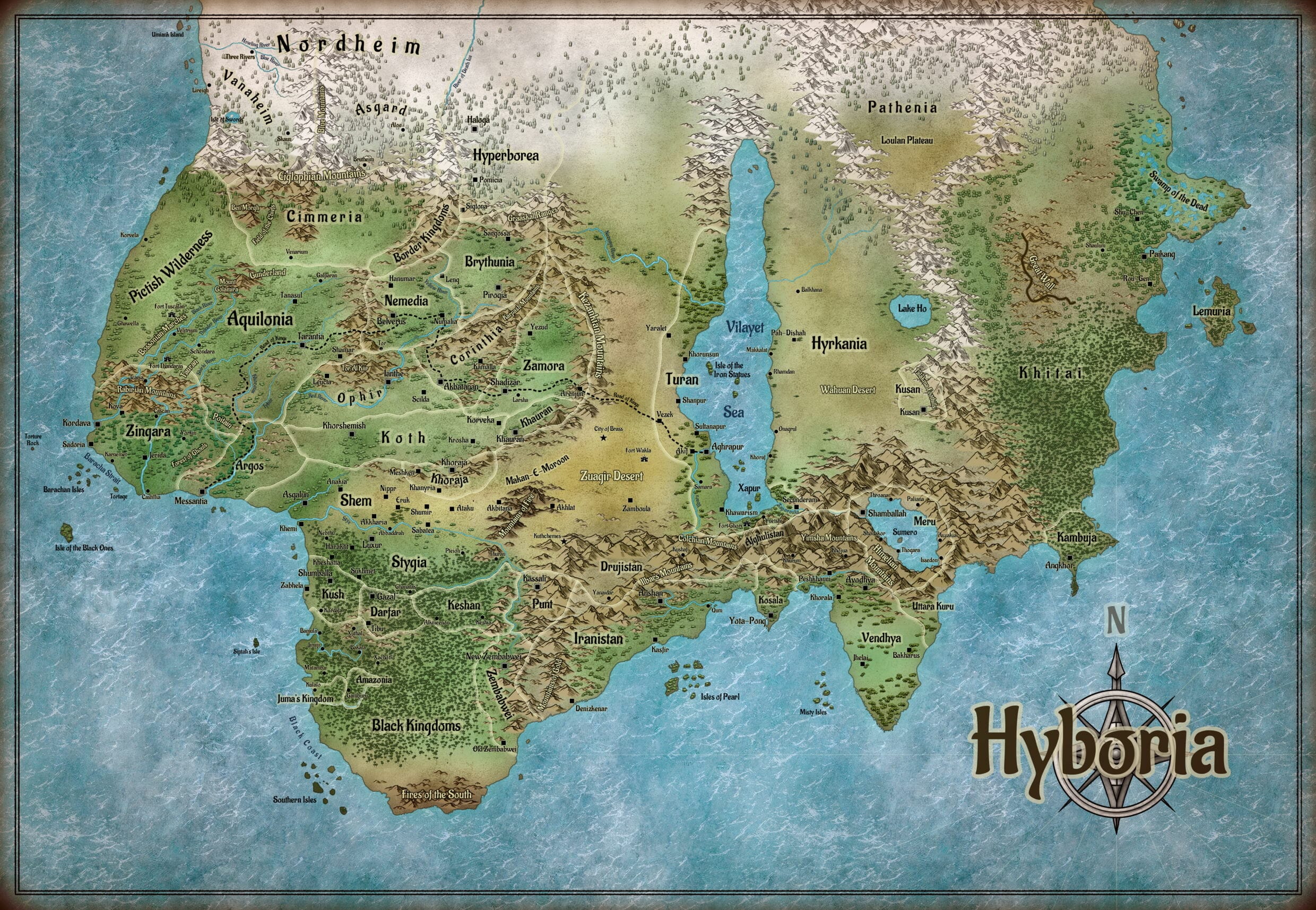Remathilis
Legend
Remember...



Remember...
Not... exactly...FWIW I always took the Gloranthan view that it's the Bronze Age, most people don't travel much, and every group's myths make them look good, so Conan's Cimmerians are convinced the Stygians are evil snake-worshippers, while the Stygians are convinced that the Cimmerians are a bunch of barbarians who don't understand their religious ceremonies. We're reading Conan's account--we don't get to read Thoth-Amon the Second's chronicles about how his dad, a brilliant and learned priest of Set who was loved very much by all three of his wives, was assaulted by a hairy barbarian...
And if you read history, everyone hates the neighbors, because there's always some plot of land that's belonged to the other group lots of times and you think you own and have fought lots of wars over, not to mention that three generations ago they came over and killed your great-granddad (of course, four generations ago, your great-great-granddad came over and killed a bunch of them, but he's a great war hero, that was a defensive war, and we'll brook no dirtying of his good name...)
Was that Howard's view? Of course not, dude was writing for a European-American audience in the 1930s.
What would Howard think, if resurrected from essential salts? We can't know, but my money is on... "Y'all are still making stories about that guy I made up to pay the bills? Awesome! Hey, can I get royalties?"

Not... exactly...

The Conan Stories are actually set during the late Pleistocene Epoch, just before the glaciers melted and the seas rose 300ft. The entirety of it is set in Africa with Cimmerian Irishmen living in what would be modern day Algeria and Libya. Meanwhile Vendhaya, his clear India allegory as a major subcontinent, needs to travel up to Pathenia which is essentially his "Land of the Lost". Sometime after the "Rise of the Sons of Arias" there's a great upheaval that changes the entire face of the world, in the same way Kull's Thurian Age ended with the "Oceans Drinking Atlantis"
We know it's set during the Pleistocene because a Roman Soldier in one of his later, lesser, works specifically references Aquilonia as having existed "10,000 years ago", and that story was set around 100AD.
So not Bronze Age, which is good since Conan solved the Riddle of Steel... But also Conan doesn't tell the story. It's either an explicit narrator in some stories (Inspiring Mako's character for the 1984 movie) or an implicit narrator/omniscient entity, with the latter being more common across the stories.
Riddle of Steel is a materialistic answer to a consistent philosophical question Conan is asked, or asks himself, through the books. Which is the value of a man, no matter what his strength or skill or efforts, compared to the steel he holds which might last far longer, be reformed to task, and thoughtlessly, willlessly, perform great and terrible deeds.Haha...defeated by someone with better knowledge of the source material! (Is the Riddle of Steel in the original stories, or is that Milius' interpolation?)
I still think the point about the characters being ancient provincials holds.
I disagree with your interpretation of the Conan movie--Milius was one of Hollywood's few right-wingers, was probably making a statement about hippies with Thulsa Doom, and opens the movie with that quote from Nietzsche about what doesn't kill you making you stronger--but there's enough poetry in your description you really ought to turn it into a novel or at least a novella.
